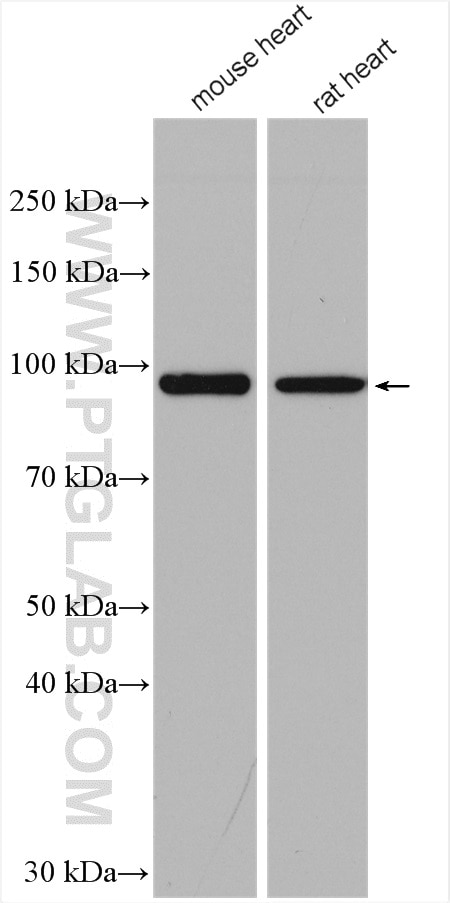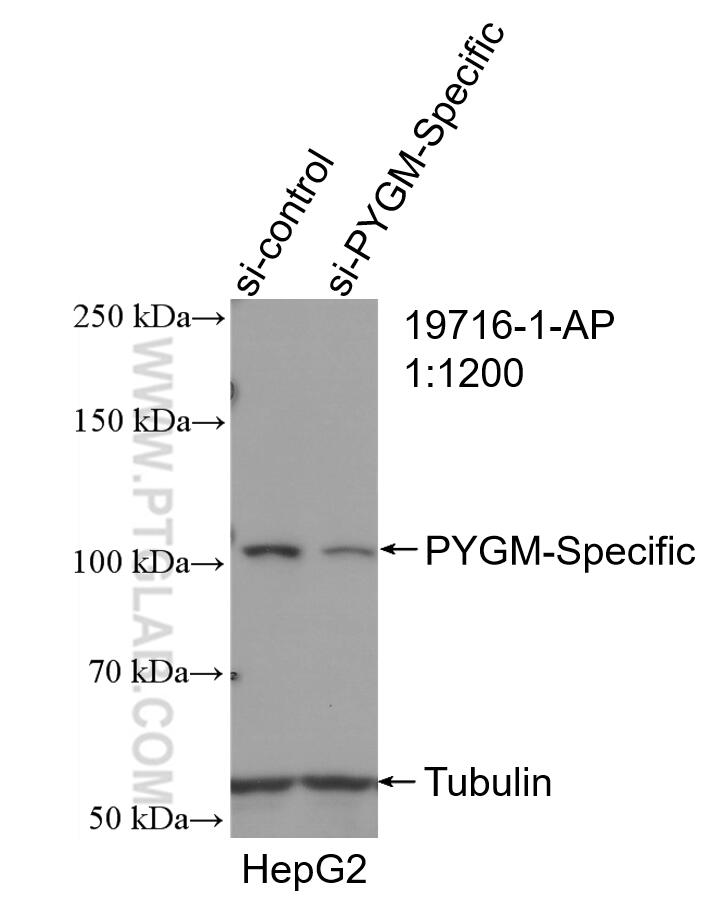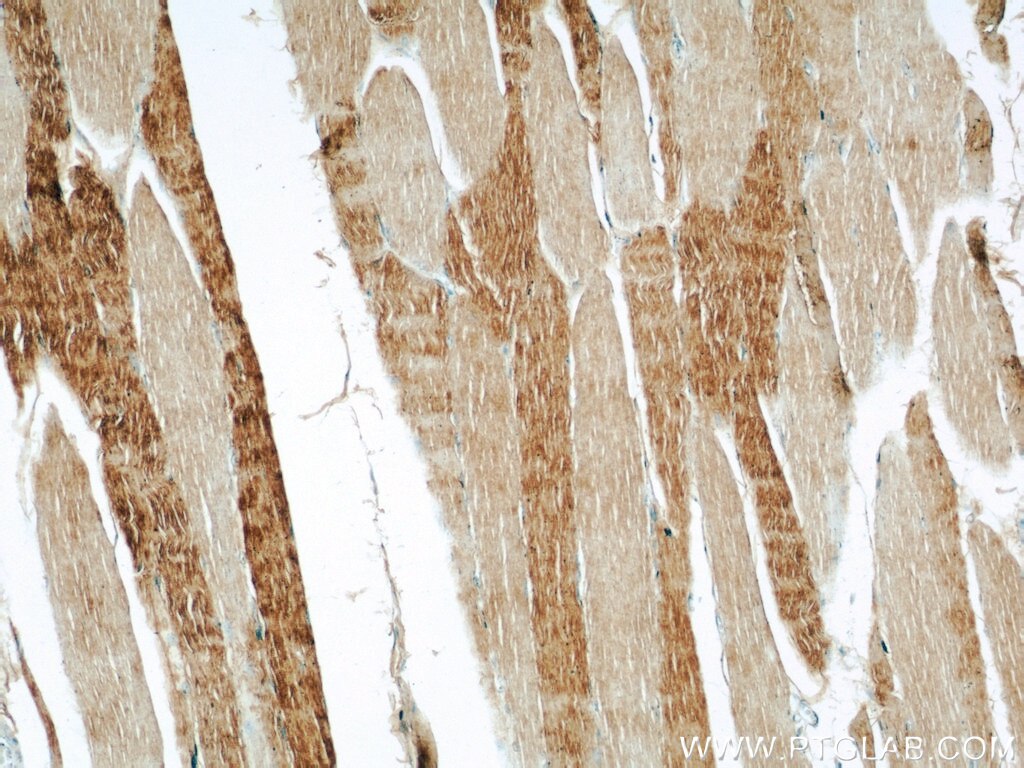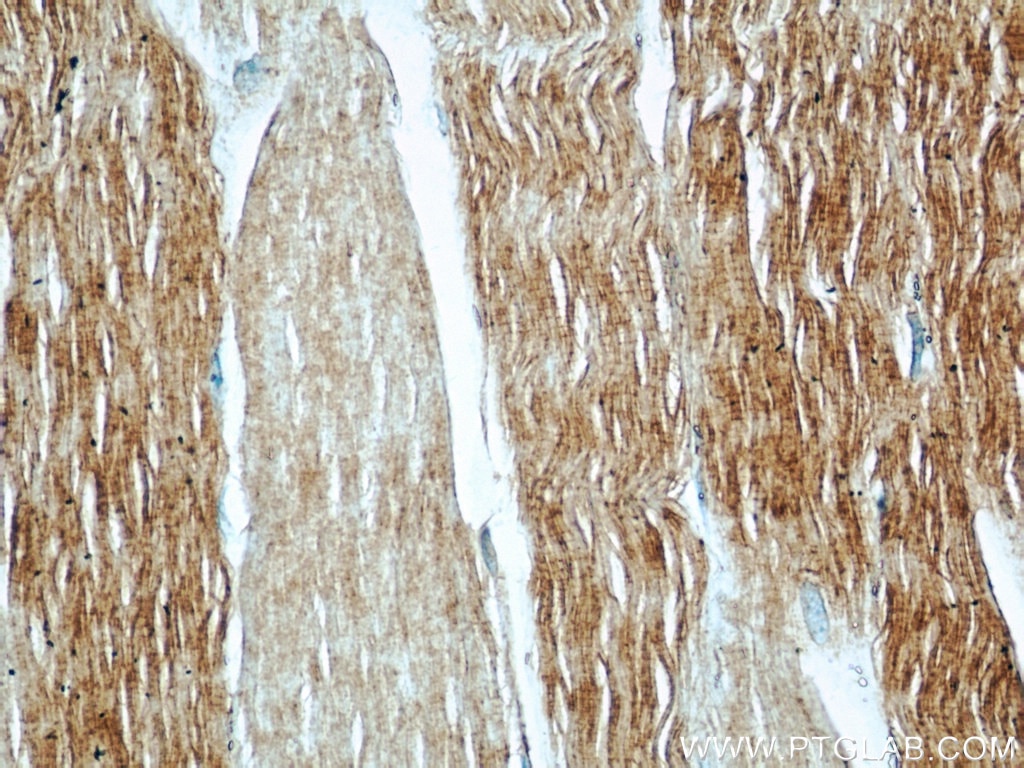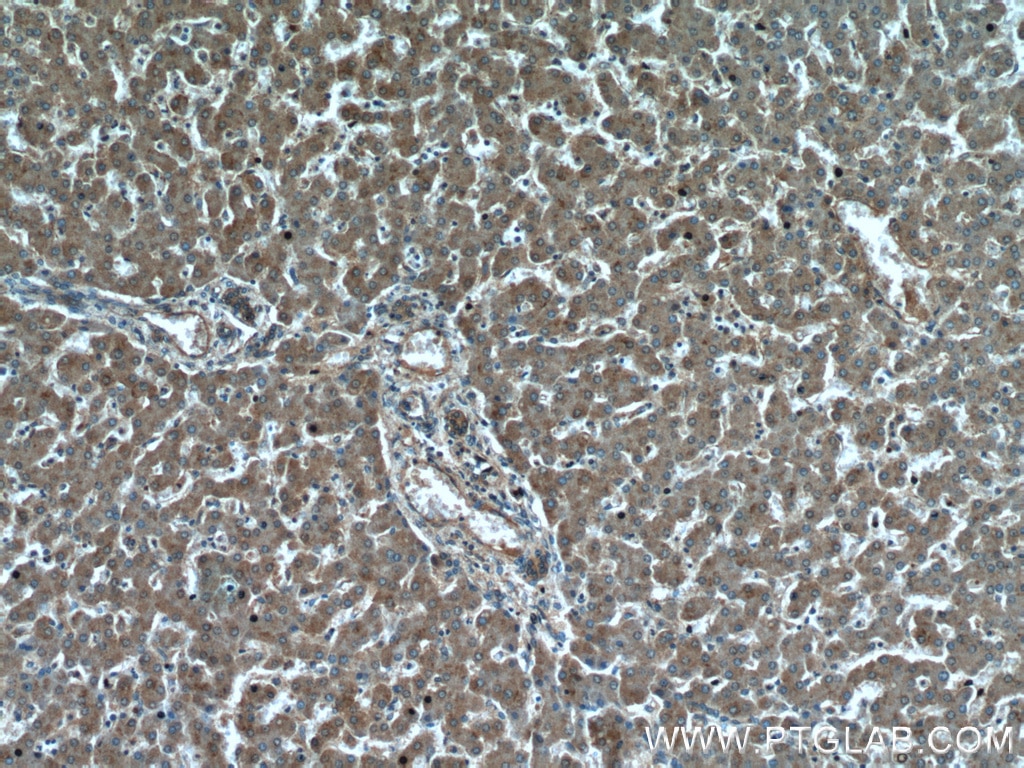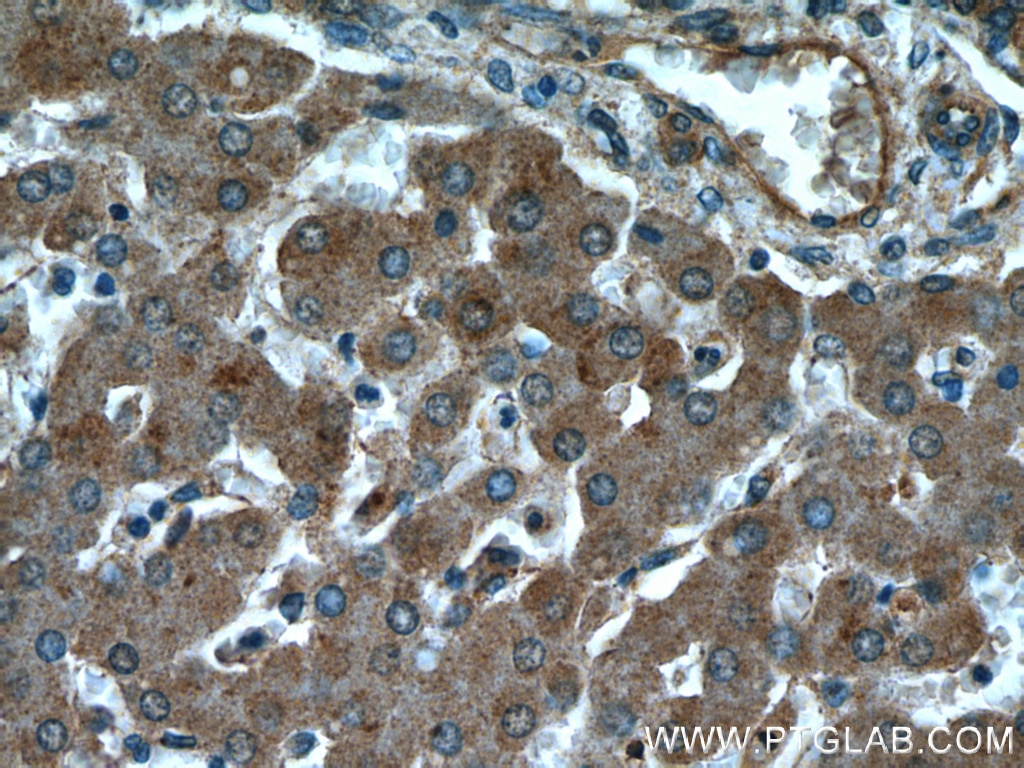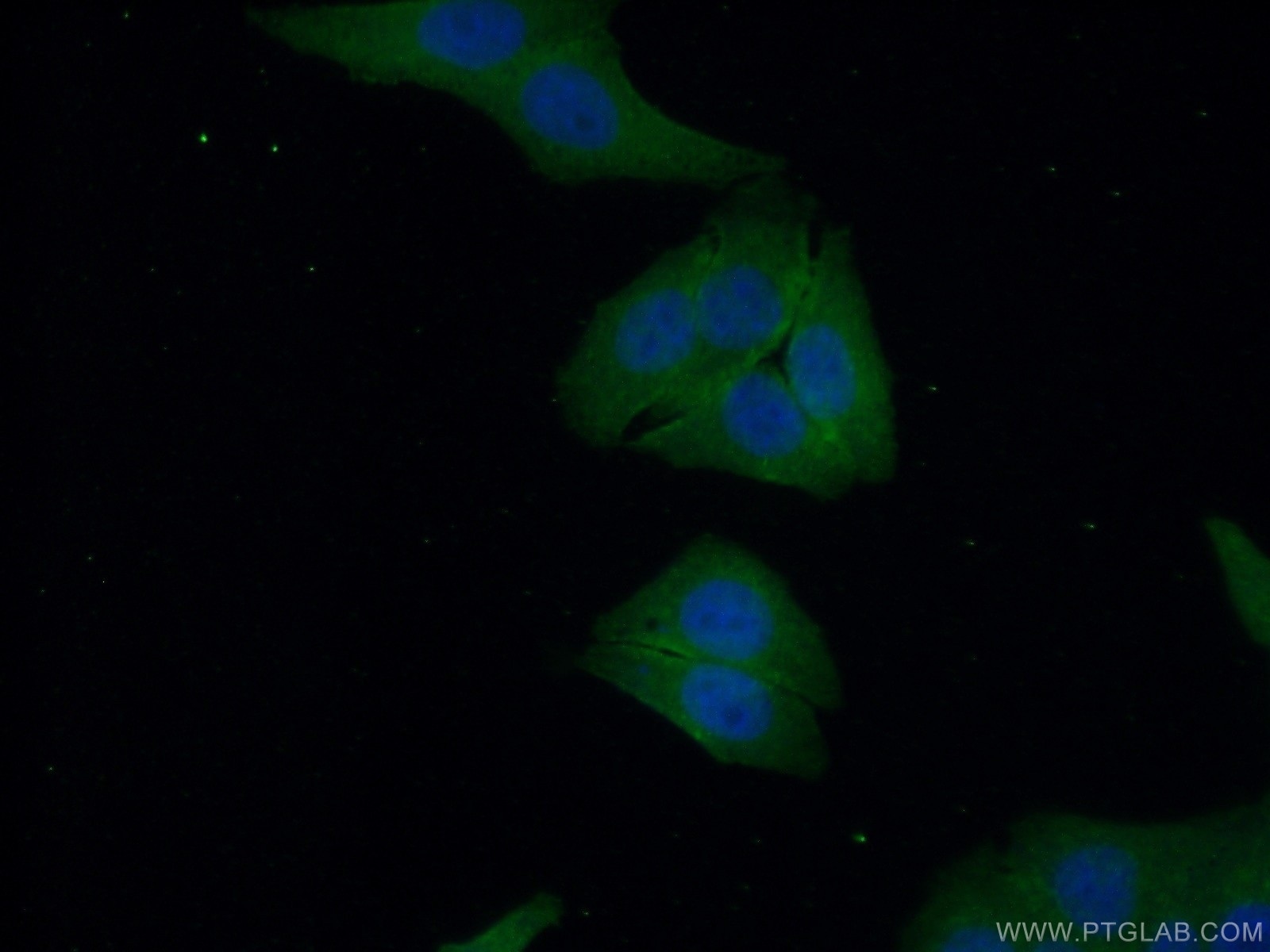- Featured Product
- KD/KO Validated
PYGM-Specific Polyclonal antibody
PYGM-Specific Polyclonal Antibody for IF, IHC, WB,ELISA
Host / Isotype
Rabbit / IgG
Reactivity
human, mouse, rat
Applications
WB, IHC, IF, ELISA
Conjugate
Unconjugated
Cat no : 19716-1-AP
Synonyms
Validation Data Gallery
Tested Applications
| Positive WB detected in | mouse heart tissue, rat heart |
| Positive IHC detected in | human skeletal muscle tissue, human liver tissue Note: suggested antigen retrieval with TE buffer pH 9.0; (*) Alternatively, antigen retrieval may be performed with citrate buffer pH 6.0 |
| Positive IF detected in | HepG2 cells |
Recommended dilution
| Application | Dilution |
|---|---|
| Western Blot (WB) | WB : 1:2000-1:10000 |
| Immunohistochemistry (IHC) | IHC : 1:20-1:200 |
| Immunofluorescence (IF) | IF : 1:20-1:200 |
| It is recommended that this reagent should be titrated in each testing system to obtain optimal results. | |
| Sample-dependent, Check data in validation data gallery. | |
Published Applications
| WB | See 6 publications below |
Product Information
19716-1-AP targets PYGM-Specific in WB, IHC, IF, ELISA applications and shows reactivity with human, mouse, rat samples.
| Tested Reactivity | human, mouse, rat |
| Cited Reactivity | human, mouse |
| Host / Isotype | Rabbit / IgG |
| Class | Polyclonal |
| Type | Antibody |
| Immunogen | Peptide |
| Full Name | phosphorylase, glycogen, muscle |
| Calculated Molecular Weight | 97 kDa |
| Observed Molecular Weight | 97-105 kDa |
| GenBank Accession Number | NM_005609 |
| Gene Symbol | PYGM |
| Gene ID (NCBI) | 5837 |
| RRID | AB_10642009 |
| Conjugate | Unconjugated |
| Form | Liquid |
| Purification Method | Antigen affinity purification |
| Storage Buffer | PBS with 0.02% sodium azide and 50% glycerol pH 7.3. |
| Storage Conditions | Store at -20°C. Stable for one year after shipment. Aliquoting is unnecessary for -20oC storage. 20ul sizes contain 0.1% BSA. |
Background Information
PYGM belongs to the glycogen phosphorylase family. Phosphorylase is an important allosteric enzyme in carbohydrate metabolism. Enzymes from different sources differ in their regulatory mechanisms and in their natural substrates. However, all known phosphorylases share catalytic and structural properties. Defects in PYGM are the cause of glycogen storage disease type 5 (GSD5) which also known as McArdle disease. The antibody is specific to PYGM.
Protocols
| Product Specific Protocols | |
|---|---|
| WB protocol for PYGM-Specific antibody 19716-1-AP | Download protocol |
| IHC protocol for PYGM-Specific antibody 19716-1-AP | Download protocol |
| IF protocol for PYGM-Specific antibody 19716-1-AP | Download protocol |
| Standard Protocols | |
|---|---|
| Click here to view our Standard Protocols |
Publications
| Species | Application | Title |
|---|---|---|
Int J Biol Sci PYGL-mediated glucose metabolism reprogramming promotes EMT phenotype and metastasis of pancreatic cancer | ||
Cells Proteomic Landscape and Deduced Functions of the Cardiac 14-3-3 Protein Interactome | ||
Oncol Lett Analysis of the expression, function and signaling of glycogen phosphorylase isoforms in hepatocellular carcinoma. | ||
Clin Proteomics The different expression of glycogen phosphorylases in renal clear cell renal carcinoma and chromophobe renal carcinoma |
Reviews
The reviews below have been submitted by verified Proteintech customers who received an incentive forproviding their feedback.
FH Patricia (Verified Customer) (02-25-2020) | Some non-specific bands appeared. Blocked in 5% skim milk and diluted antibody in TBS.
|
